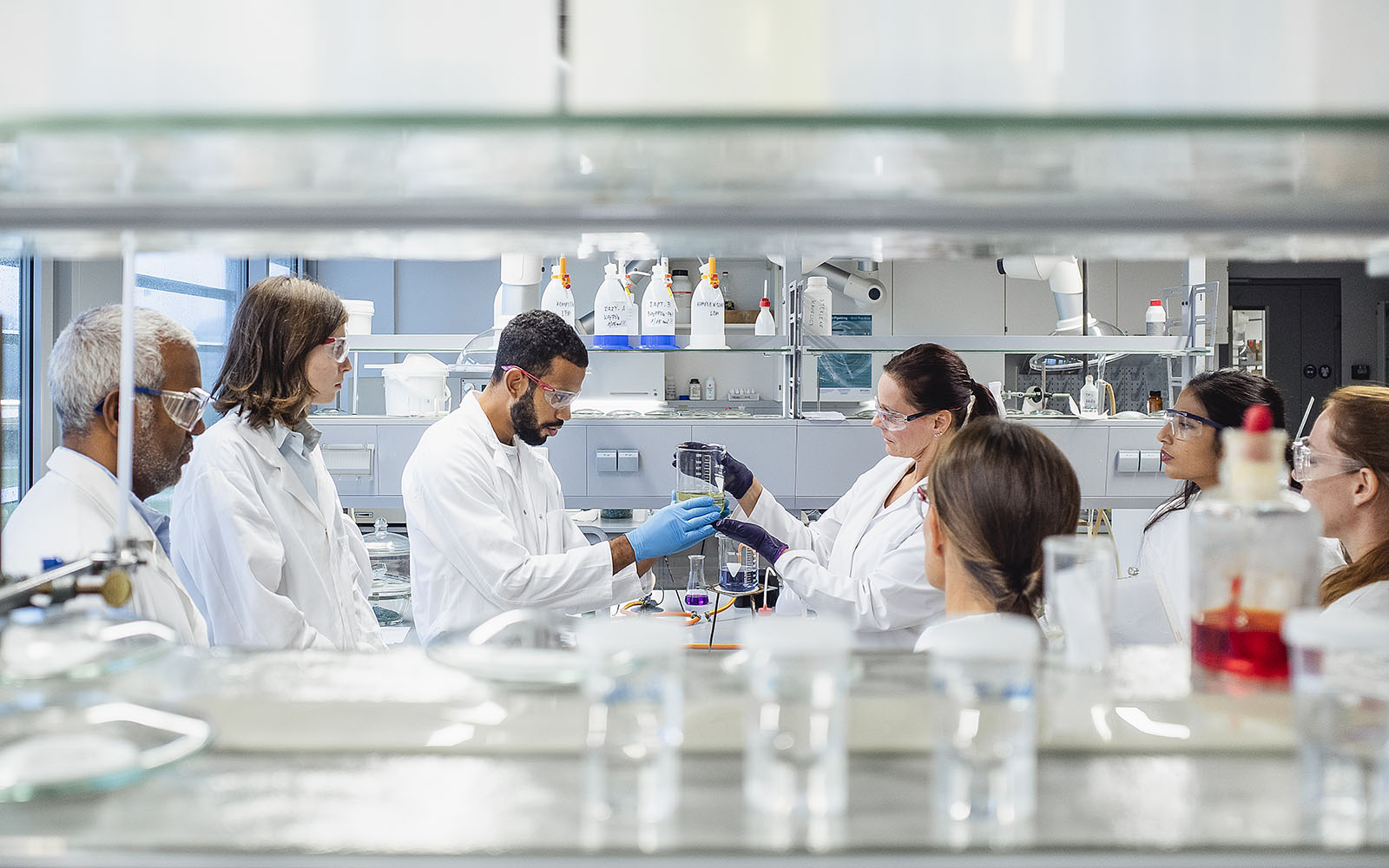Medical Genetics


Welcome to the Department of Medical Genetics
This is a very exciting time for the field of Medical Genetics, with almost daily advances occurring in our understanding of the causes of human disease. Our department, through integration of clinical care, education, and basic research, is striving to translate these medical genetics advances into improved health for Canadians. Our Department consists of an exceptional and dedicated group of scientists, clinicians, technical and support staff, and trainees who have come together with a shared vision of increasing the understanding of the causes and consequences of genetic disease, in improving diagnosis and patient care, and in educating other professionals and the public about medical genetics.
Programs
Current Graduate Students
Current graduate (MSc and PhD) students in the Department of Medical Genetics can view information pertaining to their program here. This includes the graduate manual, coursework, ethics, and other resources.
Prospective Graduate Students
As part of the Medical Sciences Graduate Program, in the Faculty of Medicine and Dentistry, you can obtain an MSc or PhD degree in Medical Genetics. We provide an excellent training program in a range of areas including cancer, developmental genetics, gene discovery, and molecular diagnostics using several different model systems and focused on several different genetic diseases.
Medical Genetics Clinic
The Medical Genetics Clinic, located in the Medical Sciences Building at the University of Alberta, provides comprehensive clinical medical genetics services to prenatal, pediatric and adult patients. Medical geneticists are expert in offering diagnostic services, medical recommendations and treatment options for those who have genetic disorders. Genetic counselors specialize in education and resources about these conditions to patients and their families.
Offered in the Fall term
MDGEN 403 - Principles of Medical Genetics
The rapid expansion of our understanding of the human genome has created new, exciting possibilities to understanding the root causes of human disease and improve health. However, this also leads to real and potential problems - both ethical and practical. This senior level undergraduate course will consist of four modules each covering different aspects of the scientific theory underlying the practice of Medical Genetics.
Sajid Merchant, Oana Caluseriu, Sherryl Taylor, Karen Niederhoffer and Peter Kannu
Dr. Oksana Suchowersky and Dr. Chris Eagle Clinical Fellowship
The Dr. Oksana Suchowersky and Dr. Chris Eagle Clinical Fellowship was created through a generous donation with the intention of building capacity and expertise in the areas of neurogenetics, neurology or genetics. The fellowship is tenable at the University of Alberta with preference given to neurogenetics. Candidates must have or currently be enrolled in specialty training in neurology or genetics, and be an MD or PhD/MD and eligible for licensure in the province of Alberta.
Contact Shailly Jain via email for further information.
Message from the Chair
Welcome to the Department of Medical Genetics at the University of Alberta. Genetics underpins every aspect of life, contributing not only to our rich diversity, but also influencing health and disease.
Collaboration is a value within our department. We are a community of scientists and clinicians who teach, research and deliver clinical care through the use of innovative techniques and discoveries. At the core of our diverse department are our people who work hard to achieve these goals with integrity.
Scientific leadership in our department focuses on several areas of genetics. Our research laboratories are equipped to study human single gene disorders utilizing a functional biology approach. Our department hosts a team of highly specialized clinicians including Clinical and Metabolic geneticists, and genetic counsellors. Our clinicians provide expertise in a number of different areas of genomic and biochemical medicine, supported by a dedicated team of administrative staff.
The Department of Medical Genetics at the University of Alberta has been providing leadership for our community for close to a quarter of a century. As Chair, I look forward to blazing this trail and encourage you to join with us in this exciting decade of discovery!
Peter Kannu, MB ChB, DCH, PhD, FRACP, FRCPC
Associate Professor and Chair
News

Researcher takes another step toward discovering how a brain molecule could halt MS
Anastassia Voronova’s latest research brings her one step closer to showing the potential of a brain molecule called fractalkine to stop and even reverse the effects of multiple sclerosis.